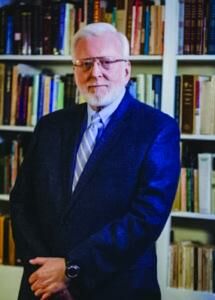By Solomon D. Stevens

I knew a wonderful woman who lived through Kristallnacht in Germany in 1938. She told me that what was most frightening to her was that the people who attacked her and her family and badly damaged her house were her neighbors — not officials of the government and not the brownshirts. She was deeply hurt by this experience. People she had thought were friends and whose children had played with her children had turned on her. She never felt safe again.
My wife and I are beginning to feel the same way. Having a strong Israel was always a comfort; it was a foundation upon which our life outside of Israel was made possible.
Before the Holocaust, Jews lived or died at the pleasure of the countries in which they lived. They suffered oppressive laws, endured pogroms, were driven out of one place after another. The establishment of the state of Israel after the Second World War was important because it created a place for Jews to go for safety. But more than that, as Daniel Gordis has put it, Israel “reinvented hope” for the Jewish people.
But Oct. 7 has changed all of that, perhaps forever. Jews in Israel are facing an existential crisis, but Jews in the Diaspora have been deeply affected as well. The unexpected invasion by Hamas exploded the myth of safety and security that had come to be part of Israeli life.
Even in a country surrounded by enemies and always under threat, there was always the feeling that Israel had things under control. Normal, everyday life could still take place. Will that feeling ever be possible again? Those who had friends or family killed or taken hostage on Oct. 7 may never recover. And the hostages themselves, if they survive at all, will never be the same. Oct. 7 has been compared to America’s 9/11, but the impact of Oct. 7 is even more fundamental.
Jews outside of Israel also feel it deeply. My wife and I have both watched with concern over the last few years as antisemitism — from both the political left and right — has grown here. But nothing compares to what we have seen since Oct. 7. Jews have been attacked and beaten on the streets, accosted in airports. Violent pro-Hamas mobs have gathered on college campuses across the country. Jewish students are hounded and bullied, and far too many college administrators have failed to stand up to them. Jewish students are hounded. Jewish cemeteries have been desecrated. Shots were fired outside a synagogue.
Israel has always been important for those Jews who chose not to move to Israel; its existence and its ability to thrive were a statement to the world that Jews would endure, that they were strong and deserved to be included in the life of all nations. Being known as a people with a country changed the character of the Diaspora. I know that my wife and I felt it. The strength of Israel gave us strength. Knowing it was there provided us with a strong foundation, a grounding. We could be comfortable here, knowing that if things got really bad, we could always go to Israel, a place of hope, tikvah. But now, Jews everywhere feel, once again, that their lives, their happiness, are tenuous.
Oct. 7 has changed our world. My wife and I feel a new kind of insecurity. How bad will things get? I find myself looking at others when we are at the grocery store and wondering if they might be a threat to us. I read my morning newspapers with trepidation. And what about our children?
If things continue to get worse, can we count on our neighbors to support us, or will we face a new Kristallnacht?
I have no doubt that Israel will find its way through the current crisis. It will survive the attack by Hamas. But the damage has been done. The feeling of safety that we in the Diaspora once took for granted has disappeared, but that is not the whole story. We may feel more vulnerable, but at the same time we are filled with new resolve. While the Oct. 7 attack has unleashed antisemitism around the world, it has also given birth to a new spiritual awakening for Jews. The Jerusalem Post reports on a new survey by Chabad.org that reveals a “renewed sense of solidarity and pride” among Jews. And the recent Global Hour of Jewish Unity, where Jews around the world — my wife and I included — joined in saying the Shema, was a moving symbol of the enduring strength of our people.
We may have to face a new level of uncertainty, but we know that we face it together. It may seem paradoxical, but recognition of our vulnerability has challenged us to dig more deeply into ourselves, and it has strengthened our belief in who we are and what we believe. The terrorists have not won. We may have to live with new scars, but we have been given the opportunity to understand ourselves more fully and to celebrate our lives as Jews.
Solomon D. Stevens has a Ph.D. in political science from Boston College.






Wonderful article!Exactly how we feel!Even more disturbing is how some of our fellow Jewish neighbors don’t even want to acknowledge what is happening all around us.As children of Holocaust survivors ,who are long gone ,we grew up hearing the horror stories and how those who returned home only to find their neighbors in their homes ,We will never forget.As former Kibbutznicks and living and serving in the IDF we are saddened and numb with all the events in Israel and here and abroad.Am Israel Chai!Thank u Solomon for your articles and insight.Regards to Michelle!Barbara and Juraj